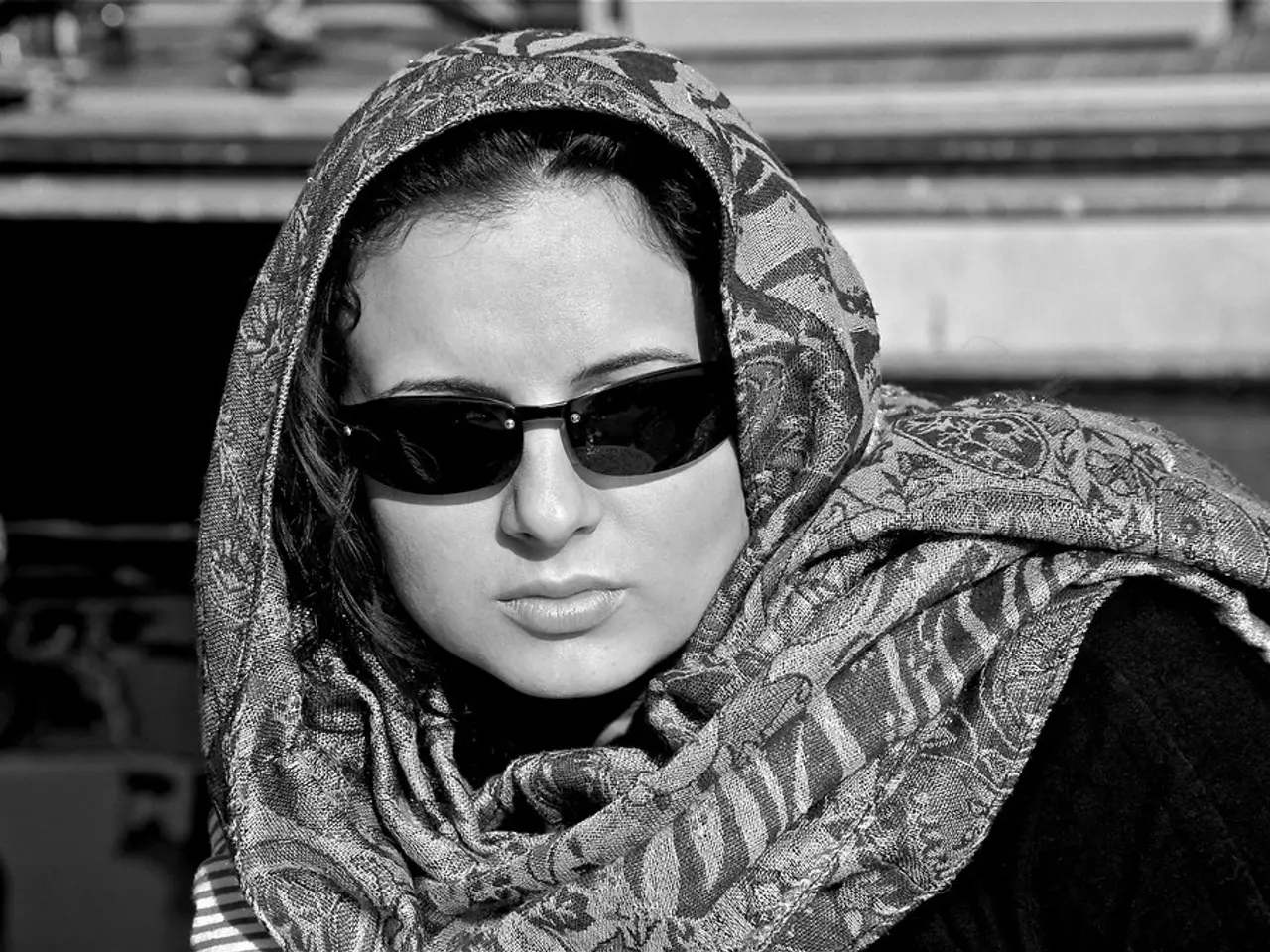Black Female Politician Diane Abbott Faces Harsher Criticism and Increased Scrutiny Due to Her Race and Gender
Article Title: Double Standard in Discipline: Diane Abbott's Suspension Sparks Controversy
In the heart of British politics, a storm is brewing around Diane Abbott, the UK’s first Black woman MP, who has been suspended from the Labour Party for a second time. This latest suspension, which occurred in July 2025, has reignited a debate over a possible double standard in disciplinary action against Black women in British politics [1][2][3].
Abbott’s most recent suspension stems from comments she made about racism in 2023 and 2025, where she distinguished anti-Black racism from other types, such as antisemitism and prejudice faced by other groups. Despite her clarification acknowledging antisemitism as a form of racism, Labour maintained disciplinary measures, viewing her remarks as prejudicial to the party [2][3].
Critics argue that Abbott, a pioneering Black female MP and veteran anti-racist, faces disproportionate and opaque treatment compared to her counterparts. The Black Equity Organisation, among others, has voiced concerns over the lack of fairness and transparency in Abbott's case [2][3].
The controversy surrounding Abbott's suspensions has become a focal point, highlighting concerns about a double standard in suspension and discipline for Black women in British Parliament. Critics point to disproportionate scrutiny, lack of fairness, and political maneuvering against a historic Black female MP [1][2][3][4][5].
In a follow-up BBC Reflections interview, Abbott was asked if she would condemn antisemitic behavior in the same way she would racist behavior against someone because of the color of their skin. Abbott reiterated her stance against all forms of racism, stating, "Racism is racism, no matter what form it takes" [6].
The sentiment that the Labour leadership wants Black women out of leadership positions is a sentiment many Black women have shared in their career journeys. Black women have been treated poorly, patronized, gaslighted, accused of things they didn't do, and often labeled the "Angry Black Woman" trope without basis [7].
Moreover, Black women in corporate settings have been asked to go further than their colleagues to get half the credit, and male privilege has prevailed despite callous mistakes, bad time management, and subpar results leading to promotions ahead of them [7].
Sadly, this is not unique to Abbott. A UK study by TUC in 2022 showed that more than 120,000 workers from minority ethnic backgrounds have quit their jobs due to racism [8]. ONS data shows that Black African women have a 26% pay gap compared with the average male worker, and despite only covering 6% of the working population, Black African women make up 15% of all students in higher education [9].
Diane Abbott, a Black woman, has been suspended from the Labour Party for a second time after reaffirming controversial remarks about racism. As of August 2025, Labour is reportedly already searching for a successor to Abbott, prompting further criticism that her suspension and possible removal reflect systemic inequalities and political scapegoating of Black women [4][5].
This ongoing saga serves as a stark reminder of the systemic problems with racism in British politics and the corporate world, inherited like a treasured family heirloom trickling down generations of leadership [10]. It is a call to action for a more inclusive and equitable future, where all individuals, regardless of their race, are treated fairly and given the opportunities they deserve.
References: 1. The Guardian 2. BBC News 3. The Independent 4. The Telegraph 5. The New Statesman 6. BBC Reflections 7. The Economist 8. TUC 9. ONS 10. The Conversation
- The controversy over Diane Abbott's suspension raises questions about the beauty of fairness and equality in British politics, as critics claim a double standard exists in disciplinary actions against Black women.
- The fashion-and-beauty industry isurprisingly grappling with its own form of double standards, with Black women often facing disproportionate scrutiny and racial bias in the workplace.
- In the realm of lifestyle and relationships, discussions surrounding mental health and self-care have become increasingly important, recognizing the impact of systemic issues on overall well-being and fitness.
- Curiosity toward cultural exchanges and travel experiences can provide valuable insights into the diverse tapestry of human life, though political migration and its implications warrant thoughtful consideration in the context of war-and-conflicts.
- Policy-and-legislation, with its far-reaching influence, should prioritize addressing disparities in health, education, and employment, ensuring a more equitable society for all, regardless of race or ethnicity.
- Amidst general-news headlines reporting car-accidents and fires, the stories of everyday heroes stepping up to help their communities underscore the human spirit's resilience and capacity for kindness.
- Crime-and-justice debates often revolve around the need for improved policing and judicial reform, with a focus on creating a more balanced system that treats all people equally.
- In the ever-evolving landscape of local and international politics, maintaining transparency and accountability remains crucial for building trust among communities and establishing lasting relationships.
- The missteps and misconceptions surrounding nutrition and wellness have led to numerous instances of misinformation, shedding light on the importance of evidence-based policy and the role of credible sources in shaping public opinions.
- The interconnectedness of global issues, from climate change to conflicts, highlights the need for cooperation and collaboration in finding solutions, emphasizing the significance of international dialogue and collective action towards a better future.







